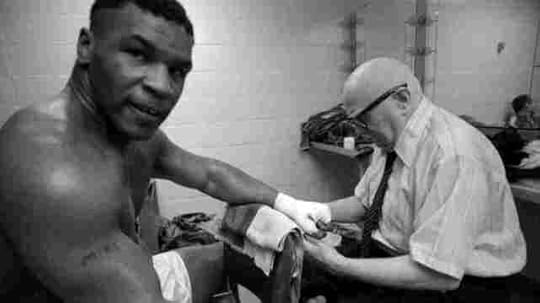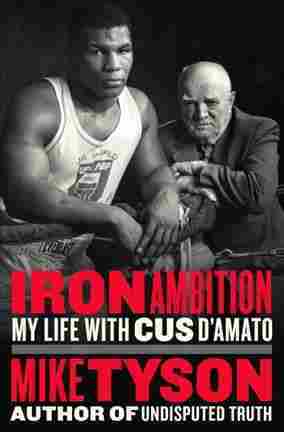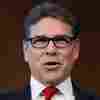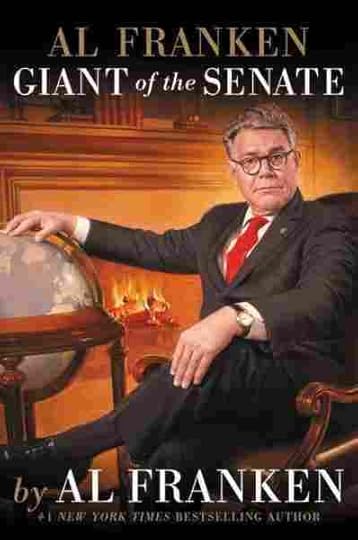Roy Miller's Blog, page 175
May 30, 2017
Mike Tyson’s New Book Is A Memorial To The Man Who Made Him A Champion : NPR
This content was originally published by David Greene on 30 May 2017 | 8:32 am.
Source link
Mike Tyson and Cus D’Amato in training. “I’m not a creator,” D’Amato once said. “What I do is discover and uncover.”
Ken Regan/Camera 5 /Courtesy of Blue Rider Press & Plume
hide caption
toggle caption
Ken Regan/Camera 5 /Courtesy of Blue Rider Press & Plume
[image error]
Mike Tyson and Cus D’Amato in training. “I’m not a creator,” D’Amato once said. “What I do is discover and uncover.”
Ken Regan/Camera 5 /Courtesy of Blue Rider Press & Plume
On a November night in 1986, a crowd gathered in Las Vegas for an event that was hyped as “Judgement Day.” Muhammad Ali was there, along with celebrities Sylvester Stallone, Eddie Murphy and Rob Lowe. (Hey, it was the ’80s.) At the center of it all was a boxing ring with a referee and two fighters: Mike Tyson and Trevor Berbick.
Tyson was 20 years old and hoping to become the youngest ever heavyweight champion. Today he says he never would have been in that ring if it weren’t for trainer Constantine “Cus” D’Amato, a man Muhammad Ali once called “the bible of boxing.” Tyson says D’Amato is the reason he had such a legendary career. He’s also the reason NPR visited Tyson’s home in Las Vegas.

We went through a couple of gates to get there, then his wife, Kiki, welcomed us and showed us to a casita near the pool. Mike Tyson came in slowly and stiffly — maybe a sign of all those years in the ring — wearing tight (read: hipster) jeans. He’s smaller than you’d think, and trim, with delicate hands.
We’re here to talk about Iron Ambition, Tyson’s new book about his former trainer. Tyson writes that when he and D’Amato first met, D’Amato was considered washed up and Tyson hadn’t even begun. He calls himself “a bad kid,” in and out of reform schools, stealing, fighting. Then, in 1980, a reform school guard took Tyson to D’Amato’s gym in Catskill, N.Y. After a few minutes in the ring, D’Amato proclaimed the kid would be a champ. So what did he see in Tyson?
“I have no idea,” the boxer says. “I think about that myself. How did he know? Out of all the kids he’s been around all his life, how’d he know I’m the guy that’s gonna do it?”
At first, Tyson says he didn’t buy it. But then he started training with D’Amato, and also started to believe. “We had a lot of dreams, hopes. … Being champ of the world, that’s all that we ever thought about.”

Tyson and D’Amato prepare for the boxer’s first pro fight.
Ken Regan/Camera 5/Courtesy of Blue Rider Press & Plume
hide caption
toggle caption
Ken Regan/Camera 5/Courtesy of Blue Rider Press & Plume
[image error]
Tyson and D’Amato prepare for the boxer’s first pro fight.
Ken Regan/Camera 5/Courtesy of Blue Rider Press & Plume
Tyson compares their relationship to that of a father and son, and then he pauses. “You have to excuse me. Sometimes I get choked up.” Is it because he misses his old trainer? “Yes.”
But Tyson and D’Amato had a complicated relationship. The boxer writes that he didn’t want to disappoint his trainer, so he threw himself into the role of “arrogant sociopath.”
“I was a smaller guy,” Tyson says. “I wasn’t going to intimidate these fighters, so I really went all out on these guys. You understand when I say I went all out on people? I was arrogant; I looked down on people, other fighters. I said, ‘No one’s ever gonna beat me. I’m the greatest fighter in the world.’ “

How did Tyson feel about the man D’Amato was turning him into? “I like that image of fighting,” he says. “It took me a long way.”
Tyson won that first championship, back in ’86, but by then D’Amato was no longer at his side. The trainer died in 1985 at the age of 77, and after his death it seems like Tyson’s life took a turn. There were more boxing wins, of course, but there was also drinking, drugs and a 1992 rape conviction.
In his book, Tyson writes, “Cus made me feel that hurting people was noble.” That made us wonder about some of the lessons his old trainer taught him, so we ask him about the rape conviction. “I didn’t ever rape that woman,” Tyson says. “That’s just something I got arrested for. … They gave me opportunities to admit that I raped this person and let me go, but I would never do that. I couldn’t live with myself doing that.” (Tyson has long maintained his innocence.)
The boxer has made a new life for himself in Las Vegas. He says he doesn’t do much of anything, and tries to stay away from people. “My life is my family life. I don’t have no life outside of that. I don’t have no night life, that’s over.”
How does he look back on his relationship with D’Amato? “I was fortunate to meet that guy,” Tyson says. “We were two guys who were ‘nothing’ who became something.”
Radio producer Danny Hajek, radio editor Shannon Rhoades and digital producer Nicole Cohen contributed to this report.
The post Mike Tyson’s New Book Is A Memorial To The Man Who Made Him A Champion : NPR appeared first on Art of Conversation.
Your Story #83: Submit Now!
This content was originally published by Baihley Grandison on 30 May 2017 | 5:11 pm.
Source link
Write a short story, of 700 words or fewer, based on this prompt: A man is surprised to find himself feeling both pleased and liberated by the news that he will soon die.
You can be funny, poignant, witty, etc.; it is, after all, your story.
Use the submission form below OR email your submission directly to yourstorycontest@fwmedia.com.
IMPORTANT: If you experience trouble with the submission form, please email your submission directly to yourstorycontest@fwmedia.com within the body of your email (no attachments, please).
Unfortunately, we cannot respond to every entry we receive, due to volume. No confirmation emails will be sent out to confirm receipt of submission. But be assured all submissions received before entry deadline are considered carefully. Official Rules
Entry Deadline: July 10, 2017.
Your Story Entry Form
You might also like:
CATEGORIES
Your Story Competition
The post Your Story #83: Submit Now! appeared first on Art of Conversation.
10 Best Poetry Podcasts for Poets
This content was originally published by Robert Lee Brewer on 30 May 2017 | 7:00 pm.
Source link
For a little over a year now, I’ve been a co-host of the WritersMarket.com podcast with Brian A. Klems (listen here). While we cover business and marketing topics for writers, I want to share some of the best poetry podcasts for poets of which I’m aware (in no particular order).
If you have a better podcast or two to share, please let everyone know in the comments below, and maybe we’ll have a follow up post.
*****
Learn how to write sestina, shadorma, haiku, monotetra, golden shovel, and more with The Writer’s Digest Guide to Poetic Forms, by Robert Lee Brewer.
This e-book covers more than 40 poetic forms and shares examples to illustrate how each form works. Discover a new universe of poetic possibilities and apply it to your poetry today!
*****
10 Best Poetry Podcasts for Poets
 Poetry Magazine podcast. As you might guess, this is a poetry podcast hosted by Poetry magazine. New episode weekly.
Poetry Magazine podcast. As you might guess, this is a poetry podcast hosted by Poetry magazine. New episode weekly.The New Yorker: Poetry. Podcast hosted by The New Yorker magazine and WNYC Studios. New episode each month.
The Poetry Society podcast. Podcast from the United Kingdom featuring conversations between the editors of The Poetry Review and contributors.
The Writer’s Almanac with Garrison Keillor. Daily 5-minute podcast that includes a little history, a little literature, and a daily poem.
The Poetry Break. This podcast is hosted by West Virginia Public Broadcasting, and a new episode seems to pop up every month or so covering a different poet.
The Poetry Project. The Poetry Project throws a bunch of audio up in bunches, disappears for a while, and then dumps a bunch of new content.
Poetry Now podcast. The Poetry Foundation has a few great podcasts, including this weekly 4-minute podcast that looks at a single poem by the poet who sheds light on it.
Poetry Off the Shelf. Another Poetry Foundation podcast, this one comes out every couple weeks and looks at contemporary poets.
Poem Podcast from the Poetry Translation Centre. Weekly podcast that shares a translated poem in English and the original language.
Wax Poetic: Poetry Canada. The last episode came out nearly 6 months ago, but this podcast has years of weekly content–so plenty of poetry and poetic conversations to explore.
*****
Robert Lee Brewer is Senior Content Editor of the Writer’s Digest Writing Community and author of Solving the World’s Problems (Press 53). Follow him on Twitter @RobertLeeBrewer.
*****
Find more poetic posts here:
Save
Save
You might also like:
CATEGORIES
General, Robert Lee Brewer’s Poetic Asides Blog, What’s New

About Robert Lee Brewer
Senior Content Editor, Writer’s Digest Community.
The post 10 Best Poetry Podcasts for Poets appeared first on Art of Conversation.
Giant Of The Senate,’ Minnesota Senator Embraces ‘The Funny’ : NPR
This content was originally published by Scott Detrow on 30 May 2017 | 9:00 am.
Source link
Sen. Al Franken, shown during the Peabody Awards ceremony in New York City on May 20, talks about running for office in his new book.
Michael Loccisano/Getty Images for Peabody
hide caption
toggle caption
Michael Loccisano/Getty Images for Peabody
[image error]
Sen. Al Franken, shown during the Peabody Awards ceremony in New York City on May 20, talks about running for office in his new book.
Michael Loccisano/Getty Images for Peabody
Senate confirmation hearings aren’t known for their viral moments.
But Sen. Al Franken seems to have a knack for creating them.
At hearing after hearing this year, some of the most newsy and memorable quotes came when the Minnesota Democrat was asking questions.
He stumped Education Secretary Betsy DeVos by asking about “the debate between proficiency and growth” in education standards — a debate DeVos didn’t seem to be aware of during her confirmation hearing.
ABC News via
YouTube
He lectured Neil Gorsuch during his Supreme Court confirmation hearing on an opinion about the right of a company to fire a trucker for abandoning his rig in order to avoid hypothermia.
“That’s absurd,” Franken said. “Now, I had a career in identifying absurdity, and I know it when I see it.”
In addition to the headlines the exchange generated, it was notable for another reason. Franken was embracing what he refers to as “The Funny.”

For the bulk of his first six-year term in the Senate, Franken did everything he could to keep his long tenure at Saturday Night Live at arm’s length. “It was very important to me to prove to the people of Minnesota that I was going to be a workhorse and not a show horse,” Franken tells NPR.
Franken was especially sensitive about coming across as serious, since he was elected to the Senate by the thinnest of thin margins: about 300 votes.
But as he gets deeper into his second term, Franken is much more comfortable owning his long comedy career and showcasing the humor that made it possible.

He’s comfortable enough to acknowledge a connection between those memorable hearing performances and his time at SNL. “Comedians kind of get to the point in an effective way,” he says. “That’s what comedy does.”
Franken is also comfortable enough to have written a new memoir, modestly titled, Al Franken: Giant of the Senate.
“Just pivot”
It’s one of the more blunt accounts published of just how strange running for office can be. Franken writes about having “to learn a set of weird and occasionally sociopathic Politician Skills.”

Like:
Raising money (“It’s not uncommon to have three straight hours of call time scheduled as part of your day. … It’s brutal.”)
Campaigning (“Imagine the training montage from a Rocky movie … but instead of jumping rope, I’m eating hot dish at an assisted living facility. … [I]nstead of guzzling a dozen raw eggs, I’m being driven five hours to speak for five minutes at the Otter Tail County convention.”)
Remembering voters’ names (“Here’s a tip: if you want to get an officeholder to dislike you, go up to him or her and say, ‘I bet you don’t remember my name.’ “)
Franken says the strangest skill to learn was the art of the “pivot” — essentially, ignoring reporters’ questions. “If someone said, ‘Why are you 20 points behind?’ I explained, ‘Well, you know, we have a long time to go.’ “
His campaign staff quickly shut that down. “They’d say, ‘No, no, no — just pivot! Just say, “Minnesotans don’t care about the polls. What they care about is their kids’ education and whether they’re going to go bankrupt if they get sick.’ “
“It took me forever to learn how to do that,” Franken says.
Longing for “neo-sticklerism”
As an entertainer who ran for federal office as a political rookie, Franken was in a position to be uniquely puzzled by President Trump’s march to the White House.
“I figured it was especially incumbent on me, an entertainer, to prove that I knew stuff. You know, as a sign of respect to the voters,” Franken writes. “So you can imagine my frustration when Trump, an entertainer (sort of), quickly showed not only that he had no knowledge about the details of public policy, but that he had no interest in learning the details of public policy.”
Add to that the fact that Franken once wrote a book about conservatives, called Lies And the Lying Liars Who Tell Them.
“This campaign it felt like you were in the post-truth era,” Franken says. “I hope that this is cyclical, and we’ll be in an era of neo-sticklerism very soon.”
Franken was finishing up the book at a point when Democrats were especially nervous and uncertain about how the Trump Era would play out. “Lately things have been trending crapshow,” he writes. “And while we don’t yet know exactly how bad things are going to get under President Trump, I think we should probably be prepared for the worst.”
In an interview, he compared how things have actually played out with how he expected them to. “Oh, I think they’re slightly worse,” he says. “I didn’t expect to like this, but I can’t believe how fast this Russia investigation is going. I also am appalled by this budget. I’m appalled by the health care bill that the House passed.”
Franken actually played a role in changing the course of that Russia investigation.
It came when he was questioning Jeff Sessions during his attorney general confirmation hearing. “I had been called a [Trump] surrogate at a time or two in that campaign, and I did not have communications with the Russians,” Sessions said in response to a Franken question.
That wasn’t the case, and because of that, Sessions ended up recusing himself from the Russia investigation.

Franken admits this is not a case where all those years of performing came in handy.
“He answered a question I didn’t ask, so I can’t really take credit for it,” he says.
Sessions is one of many Republicans Franken says he’s become friendly with during his time in the Senate.
Texas Sen. Ted Cruz is decidedly not in that group.
Franken writes at length about learning and appreciating the rules and norms of the Senate, which basically boil down to lawmakers treating each other with respect.
Despite that, Franken devotes an entire chapter to insulting Cruz.
Among the key quotes: “The problem with Ted — and the reason so many senators have a problem with Ted — is simply that he is an absolutely toxic coworker. He’s the guy in your office who snitches to corporate about your March Madness poll and microwaves fish in the office kitchen. He is the Dwight Schrute of the Senate.”
“You have to understand that I probably like Ted Cruz more than most of my other colleagues like Ted Cruz,” Franken says. “And I hate Ted Cruz.”
Cruz says the book is “obnoxious and insulting.”
For Franken, that might be the best blurb imaginable to slap on the back cover of the eventual paperback edition.
The post Giant Of The Senate,’ Minnesota Senator Embraces ‘The Funny’ : NPR appeared first on Art of Conversation.
Food Memories of Travels to France
This content was originally published by FLORENCE FABRICANT on 30 May 2017 | 2:32 pm.
Source link
Photo
Credit
Patricia Wall/The New York Times
Gastronomy, and not just the Eiffel Tower, has always lured some travelers to France. Adrienne Zausner; her husband, Martin Zausner; and their friend Joan M. Harper were among those gastronomes, dining at Michelin three-star restaurants the way safarigoers checked the “Big Five” off their lists. Ms. Zausner went beyond exquisite dinners by befriending chefs, cooking with them and serving their recipes at home. Now, afflicted with primary progressive aphasia, a type of degenerative dementia, Ms. Zausner can no longer prepare lobster in Champagne sauce from L’Auberge de L’Ill or salmon in sorrel sauce from Jean Troisgros. Ms. Harper has assembled a cookbook of recipes, stories about Ms. Zausner’s travels and useful kitchen advice. Ten percent of the proceeds goes to the Association for Frontotemporal Degeneration: “Cooking With Adrienne: A Story of Friendship and Food” by Joan M. Harper (Harper Publications, $19.99), cookingwithadrienne.com.
Continue reading the main story
The post Food Memories of Travels to France appeared first on Art of Conversation.
D.C.'s Politics and Prose to Open Second Location
This content was originally published by on 30 May 2017 | 4:00 am.
Source link
Washington, D.C.’s Politics and Prose Bookstore has announced plans to open a second location at Union Market, a food and artisan hub located in the capital’s northeast district.
Source link
The post D.C.'s Politics and Prose to Open Second Location appeared first on Art of Conversation.
‘The Descent Of Man,’ By Grayson Perry : NPR
This content was originally published by Jason Heller on 30 May 2017 | 11:00 am.
Source link
Grayson Perry isn’t widely known in America, but in his native England, he’s a cultural luminary. After beginning his career as an artist specializing in ceramics in the early ’80s, he spun off into other media, appearing regularly on British TV screens as the subject and — or host of — programs such as Why Men Wear Frocks and All Man.
As those titles suggest, the topic of masculinity looms large in Perry’s public persona. A self-identified transvestite since his teenage years, he’s openly spoken about the pitfalls and misperceptions of being a man. That amiable self-examination carries over into his new book, The Descent of Man — a funny, engaging, and at times penetrating trek through the tricky landscape of contemporary masculinity.
Perry was 12 when he realized he was attracted to wearing women’s clothes, and he’s wise to bring some of that personal perspective into Descent. He punctuates the book with poignant vignettes he draws from his life: how his boyhood teddy bear came to represent his budding masculinity, how he hated to eat from plates with floral prints when he was a kid, thanks to a learned gendering of reality that trickled all the way down to the dinner table, and how his rage issues as a young man had roots in growing up with a violent stepfather.
Stories about his transvestitism come into play as well. “From a young age I have felt that masculinity is optional for someone with a penis,” he writes. But as with all of his anecdotal asides, he keeps them conversational and concise. And he always ties them into the bigger idea: that today’s notions of masculinity are outdated and in need of a serious overhaul.
When it comes to the moralizing and academic side of Descent, Perry isn’t quite as engaging. He focuses on four categories — power, performance, violence, emotion — to varying degrees of persuasiveness. His examination of entrenched, white-male privilege dips into the voice of textbooks from time to time, and when he overdoes the quotes from feminists and philosophers, he occasionally sounds didactic and dry.
Wisely, though, he livens up his ideas with wry humor, at one point lumping “dinner-party bores” in with sex offenders and corrupt politicians on the scale of manly villains, and dwelling on a topic particularly close to his heart, clothing. An extended riff on the male fascination with the leather jacket is a rollicking, insightful mini-essay in and of itself.
Descent is a slim book, but it packs plenty of surprises per page. Perry veers from mild satire to sobering analysis to confessional candor, all while hopping between issues of race, class, gender, sexuality, economics, anthropology, sociology, and psychology. As he skims along with articulate ease, a few of his observations fall flat — pointing out that skyscrapers and neckties are phallic symbols isn’t exactly the cutting edge of social critique — but his humor and humility smooth over the bumpy patches. And when he dives into some of his main themes, such as how men unconsciously police themselves and other men in terms of their perceived level of masculinity, he does so with a deep empathy.
‘Descent’ is a slim book, but it packs plenty of surprises per page.
The book closes with a brief, bullet-pointed manifesto of his proposed Men’s Rights. It’s a lightly tongue-in-cheek list — “The right to be intuitive,” “The right to be uncertain,” and so on — but its commonsense humaneness is powerful. There’s not much new to Descent, especially for those who are predisposed toward Perry’s point of view, and he openly acknowledges that he may be preaching to the choir.
His overall optimism, though, is infectious — the belief that membership in the human race supersedes membership in any given gender. On one hand, he describes himself with hint of snark as “a doubter at the gates of the crumbling superdome of masculinity,” on the other, he says, “I write this book with goodwill and in the hope that men will learn to flourish in a changing world.” Not just for their sake, he argues convincingly, but for everyone’s.
Jason Heller is a senior writer at The A.V. Club, a Hugo Award-winning editor and author of the novel Taft 2012.
The post ‘The Descent Of Man,’ By Grayson Perry : NPR appeared first on Art of Conversation.
In ‘Trophy Son,’ Fictional Character Accuses Real Life Tennis Stars of Doping
This content was originally published by STUART MILLER on 25 May 2017 | 4:47 pm.
Source link
More than anything else in the novel, those few lines are likely to leap off the pages into a public debate.
Brunt said that was not his intention.
“I didn’t set out to write some book on performance-enhancing drugs,” he said. “As a matter of plot, it’s a small percentage and sort of a side thread to the overall sacrifice these athletes make in any sport.”
Brunt worked as a management consultant, in venture capital and as an internet security chief executive before setting out as a novelist. He reached The New York Times’s best-seller list with his debut, “Ghosts of Manhattan,” about a Bear Stearns whiz just before the Great Recession, and his follow-up, “The Means,” about a political campaign and a savvy, enterprising and beautiful journalist.
Brunt, 45, has three young children with his wife, the anchor Megyn Kelly of NBC.
“Trophy Son” was inspired by how childhood sports have changed since his youth to become highly specialized and competitive, as the pressures on athletes trickle down from colleges to high school to youth sports, adding incentives for them to try performance-enhancing drugs.
Continue reading the main story
“Those are the years when you are being socialized and should be figuring out how to engage the world,” said Brunt, sitting at the table in Edgar’s Cafe on the Upper West Side of Manhattan where he writes by hand for three hours each morning.
Continue reading the main story
“But for these athletes it’s like being born into the Church of Scientology,” he said. “How do you know you’re in this crazy church when you don’t know anything else and it all started at an age where you weren’t making your own decisions?”
Continue reading the main story
Stratis’s father resembles Andre Agassi’s, an overbearing former Olympic athlete and immigrant, but Brunt said the proliferation of “these crazy tennis academies” as a replacement for high school has more children “giving up any other kind of life.”
For “Trophy Son,” Brunt said he interviewed teaching pros and current and former players like James Blake and John Isner. Some conversations were about the day-to-day routine on the tour — “what you eat and how long you warm up”; others touched on darker topics. Performance-enhancing drugs, beyond the few high-profile suspensions like those for Marin Cilic and Maria Sharapova, became an unavoidable topic, Brunt said.
And he said using the names of real players was necessary, even though he had no proof they were involved with performance-enhancing drugs.
“It resonates with the reader more if they can ground the issue with a real backdrop,” he said.
Photo
Credit
Alessandra Montalto/The New York Times
Reality’s other interruptions in the book are minor and benign: Stratis plays doubles with Steffi Graf at an Agassi-run benefit; John McEnroe is the voice of tennis broadcasting. But the book never fully resolves this crossover into reality because Stratis never faces Djokovic, Murray or Nadal, instead dethroning a fictional top-ranked player.
Continue reading the main story
Brunt was careful to make connections between real players and doping implicit rather than explicit. In the book, Hicks says a Spanish clinic implicated for distributing performance-enhancing drugs “had a file” on Nadal and Ferrer. Hicks also remarks on Djokovic’s improved stamina and Murray’s more muscular physique.
Brunt said the St. Martin’s Press legal department left his phrasing intact but had him add a line in which Hicks tells Stratis to look at the real website Tennis Has a Steroid Problem for information. (The site no longer updates, but it is still available online.)
Continue reading the main story
“I certainly did not set out to hurt anyone,” Brunt said. “I just wanted to shine the light on this issue.”
Continue reading the main story
Stuart Miller, the International Tennis Federation’s senior executive director of integrity and development, saw it differently.
Continue reading the main story
“Audiences will see this as statement of fact, not just a piece of fiction,” Miller said. “It is a concern for the players, and you could argue that it is defamatory.”
Most representatives for the players named in the book did not want to comment. The Association of Tennis Professionals also did not comment or provide a representative from the Player Council.
Continue reading the main story
None of the players connected to doping in the book have tested positive for a banned substance. And Nadal and Murray in particular have been outspoken about their sport’s issues with performance-enhancing drugs.
Nadal has said he wants all of his test results released to prove he is clean. He also sued a former French sports minister, Roselyne Bachelot, for charging that his seven-month absence in 2012 was not because of a knee injury but instead was a so-called silent ban to hide a positive drug test. The case comes to court in Paris in early July.
Isner said he discussed only daily life on the tour with Brunt and never talked about performance-enhancing drugs. He said he would not have implicated any of those players.
“There’s not one shred of me that believes that those guys are doing anything illegally,” he said. “They work the hardest of anyone, and they deserve everything that they’ve achieved.”
Continue reading the main story
Brunt said that during his research “people in a position to know” told him that the use of performance-enhancing drugs was “prevalent” in tennis.
Continue reading the main story
“I don’t know the truth; I haven’t got the videotape,” he said. “But there have been all sorts of rumors and speculations around certain players.”
Continue reading the main story
The book is “real and pretty true to life, or true to the speculation,” Brunt said, adding, “I’m not the one out here throwing darts — these darts have been thrown for years.”
Continue reading the main story
But just because the darts have previously been thrown does not mean Brunt is not vulnerable legally.
“The fact that the book is fiction doesn’t get you very far when you are talking about real people,” said George Freeman, the executive director of the Media Law Resource Center. Claiming to be repeating what others have said may not hold up, either; many courts do not accept that defense, Freeman said.
But as public figures, the players would have to prove “actual malice,” he added.
“They have to show he had serious doubt as to the truth,” said Freeman, a former assistant general counsel of The New York Times Company. “If he says, ‘I believe it and there is enough out there, even if I can’t prove it,’ that is actually good enough.”
Lloyd Jassin, a lawyer based in New York whose specialties include publishing law, said in an email that much of what Hicks says is the character’s opinion and in the United States, “an opinion is not considered defamatory unless it is couched in or implies false facts.”
Continue reading the main story
Brunt’s book also goes after the International Tennis Federation for putting the sport’s image over a strong and transparent antidoping program, an accusation that has frequently been made in the news media. Players, including Murray and Roger Federer, and antidoping experts have complained about a lack of in-tournament testing and called for more surprise tests away from competition.
Late in the novel, Stratis tests positive for a banned substance, but a tennis federation executive grants a silent ban, allowing Stratis to claim an injury as an excuse for his absence.
Continue reading the main story
“He wanted my test gone as much as I did,” Stratis says in the book. “Not because he liked me personally. He liked that I sold tickets and TV rights and tennis needed a clean image to keep growing revenue.”
Continue reading the main story
Miller of the I.T.F. called that scene “impossible.” He says an independent agency collects the samples and reports not just to the tennis federation, but also to the World Anti-Doping Agency and to the antidoping agency of each player’s home country.
Continue reading the main story
“There are checks and balances, so silent bans where the federation is complicit or colluding can’t happen,” Miller said.
The I.T.F. last year ended the practice of not announcing “provisional suspensions” — during which players awaited hearings on doping violations — acknowledging that they were the same as silent bans. “We want to become as transparent as possible,” David Haggerty, the federation’s president, said.
Miller said that it would be “naïve” to think the sport is totally clean.
“It is always a challenge, but there is no evidence of a systemic problem,” he said. “It is quite disappointing to see the sport being treated this way in this story.”
Brunt stood by his book but said fans like him were somewhat complicit in supporting players they believed might be doping.
Continue reading the main story
“It has tarnished the game a little bit for me,” he said.
But, he added, he still loves to watch it.
Continue reading the main story
The post In ‘Trophy Son,’ Fictional Character Accuses Real Life Tennis Stars of Doping appeared first on Art of Conversation.
May 29, 2017
A Former F.B.I. Agent on Terrorism Since the Death of Bin Laden
This content was originally published by MICHIKO KAKUTANI on 29 May 2017 | 8:55 pm.
Source link
Soufan, who left the F.B.I. in 2005, has been an outspoken critic of the Bush administration’s so-called E.I.T.s, arguing that torture is both morally wrong and ineffective and dangerous — generating false leads and unreliable information, and helping terrorists find new recruits.
Photo
Ali Soufan
Credit
Laura Cutri
In “The Black Banners,” Soufan provided a compelling insider’s account of American efforts to track down the perpetrators of Sept. 11, and recounted the story of Al Qaeda up through the death of bin Laden. His new book covers some of the same ground, but focuses on that terrorist group after bin Laden’s death, and how it and the Islamic State have evolved since — their different philosophies and divergent trajectories, and how the personalities of their leaders have shaped the organizations. Of the relationship between the soft-spoken bin Laden and Abu Musab Al-Zarqawi, the fiery militant who founded the group that would become the Islamic State, Soufan quotes an intelligence officer: It was a case of “loathing at first sight.”
Much of this has been covered in books like “Black Flags: The Rise of ISIS” by Joby Warrick, “ISIS: Inside the Army of Terror” by Michael Weiss and Hassan Hassan, and “ISIS: The State of Terror” by Jessica Stern and J. M. Berger. But Soufan brings firsthand, on-the-ground experience hunting down and interrogating Qaeda members. “Anatomy of Terror” not only tells a gripping story but is filled with insights that put today’s terror attacks by the Islamic State and Al Qaeda in perspective with the history and complicated geopolitics of the region.
Continue reading the main story
Soufan underscores the disastrous role that the United States invasion of Iraq and its bungled occupation played in fueling terrorism, creating chaos and a power vacuum in Iraq — the perfect incubator for insurgent violence and bloodshed. Two calamitous decisions made by the Americans (dissolving the Iraqi Army and banning members of Saddam Hussein’s Baath Party from positions of authority) would prove fateful. Soufan writes that embittered and unemployed “former Baathists soon became the backbone of the new Islamic State of Iraq.” He adds, “With their governmental, intelligence, and military experience, these men made themselves essential both to ISI’s battlefield achievements and to the terror tactics it has deployed against ordinary citizens.”
He lucidly describes the nefarious modus operandi (borrowed, in part, from Hussein’s regime) by which ISI — which would be renamed ISIL (Islamic State of Iraq and the Levant) or ISIS (Islamic State of Iraq and Syria), and later simply IS, the Islamic State — began aggressively conquering territory in Iraq and Syria in 2013. It would start, in each town, by opening what appeared to be a religious community center, then selecting fervent young men “to inform on their neighbors and spy on any rival rebel groups in the area.”
Continue reading the main story
While gathering intelligence and blackmail material on residents, Soufan explains: “ISIL would begin concentrating its fighters in the area — typically foreigners who would have less compunction about killing or subjugating the natives. When the local faction judged that it had amassed enough manpower and enough leverage with the local population, it would go public and seize the municipal government, violently if necessary.” Leaders of rival groups would be assassinated, and anyone who opposed ISIL’s rule would be killed — terror tactics that compelled allegiance from local tribes.
Continue reading the main story
In other chapters, Soufan gives a detailed portrait of Al Qaeda’s more bureaucratic operation, describing bin Laden’s long view of history and his penchant for micromanagement. (“Please send me the résumés of all the brothers who might be nominated for high administrative positions now or in the future.”)
Such passages give a keen sense of how these terrorist groups operate day to day. Soufan also uses some of the techniques he learned as an interrogator to get inside the heads of his subjects, mapping the factors that lead many to become jihadis, and the ways Al Qaeda and the Islamic State use publicity and propaganda to recruit members and promote their brand.
“Know your enemy,” he quotes Sun Tzu, adding that empathy is a useful tool in this war — “not in the colloquial sense of sharing another person’s perspective, but in the clinical sense of being able to see the world through another person’s eyes.” By understanding Al Qaeda and the Islamic State, he writes, we can better “combat the destructive ideology they represent.”
Continue reading the main story
The post A Former F.B.I. Agent on Terrorism Since the Death of Bin Laden appeared first on Art of Conversation.
Ann Birstein, Memoirist and Novelist, Dies at 89
This content was originally published by SAM ROBERTS on 29 May 2017 | 11:54 pm.
Source link
Her difficult marriage to Alfred Kazin arose in some of her writings.
Source link
The post Ann Birstein, Memoirist and Novelist, Dies at 89 appeared first on Art of Conversation.



